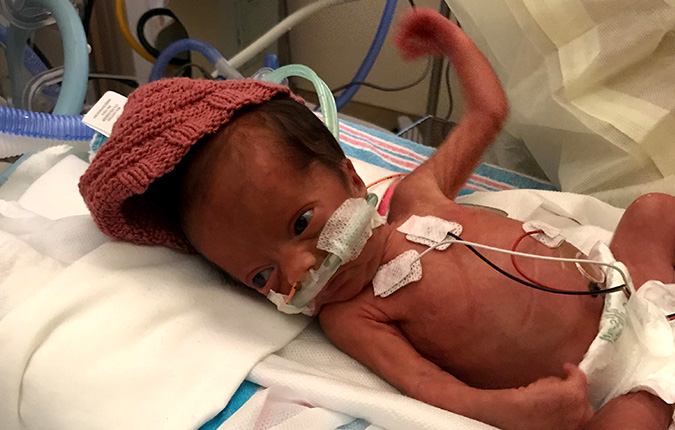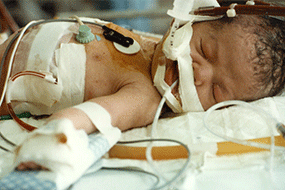Condition
Congenital Diaphragmatic Hernia
What is congenital diaphragmatic hernia (CDH)?
The diaphragm is a thin sheet of muscle that separates the abdomen from the chest and it helps us breathe. A congenital diaphragmatic hernia (CDH) is a birth defect that causes a hole in the diaphragm during prenatal development.
A CDH allows some of the lower abdominal organs to move through the diaphragm into the chest. The presence of abdominal organs in the chest puts pressure on the developing lungs. As a result, the lungs are smaller than normal (pulmonary hypoplasia) and do not function normally (a problem known as pulmonary hypertension).
Frequently Asked Questions
What causes congenital diaphragmatic hernia?
What are the symptoms of congenital diaphragmatic hernia?
How is congenital diaphragmatic hernia diagnosed?
What are the treatments for congenital diaphragmatic hernia?

High-Risk Prenatal Care at Children's National Hospital
The exerts in the Prenatal Pediatrics Institute are dedicated to helping babies get the best possible start in life. Discover more about the treatments we offer.

Providers Who Treat Congenital Diaphragmatic Hernia
 Aasha's Rare Gift Will Help Other Babies Grow up Healthy
Aasha's Rare Gift Will Help Other Babies Grow up HealthyTesting the descrption field
Departments that Treat Congenital Diaphragmatic Hernia

Prenatal Pediatrics Institute
The Prenatal Pediatrics Institute at Children’s National Hospital in Washington, D.C., provides specialized care for babies during pregnancy, delivery and after birth.









